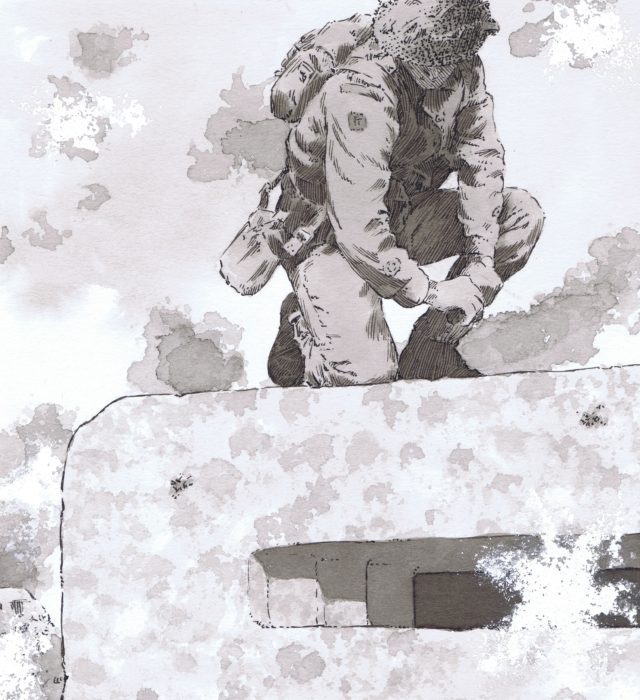On this, the anniversary of D-day, we remember those tumultuous events and reflect on the nature of bravery and sacrifice. The landings were successful for several reasons, not least the willingness of ordinary men and women to do ‘their bit’. Thomas Henry Lovegrove is not a name you will know, but you should. Thomas Lovegrove, the son of a Salvation Army officer, was born on December 14, 1908. He himself worked with the Salvation Army before becoming a Baptist Minister; clearly working in the service of others was ingrained in him. In 1941 he volunteered to become an army chaplain and after a period of home service he was posted to the 8th Army, then fighting in North Africa.

Sicily, 1943
In 1943 he was posted to the 6th Battalion, The Green Howards then in the midst of the campaign in Sicily, alarmingly but indicative of the ‘front-line’ role of the Army Chaplain, his predecessor had been killed. He returned to the UK with the battalion in November 1943 and began the preparation for the Normandy landings. He described his role as being: “The one person with time to be a confidante and Counsellor. To share the family concerns, the fears and hopes of all concerned.”
On Sunday 4 June, Rev. Lovegrove conducted a service aboard ship. Much liked by the men of the battalion he had blotted his copybook some weeks before when, during an exercise at sea he had chosen as his text ‘The hour has now come….’ Many thought the Reverend had chosen a subtle way to tell them that they were on their way to France.

D-Day landing
On 6 June, Rev. Lovegrove landed immediately behind the assault wave of the 6th Battalion on Gold Beach, resplendent in Battle Dress, clerical collar, and full pack, but no gun. He recounted how, having landed they had to wait for the Royal Engineers to cut a gap through the barbed wire and other beach obstacles. He also witnessed CSM Stan Hollis, single-handedly attack a pillbox that was holding up the advance – just one of the actions that distinguished Hollis as the only man to be awarded the Victoria Cross during the landings.

Clearly a resourceful man, Rev. Lovegrove managed to get hold of a 500cc Norton motorcycle and rode around looking for wounded which, once gathered he took the back for medical treatment. He was very aware of his role as the main link between the wounded in the front-line and medical help further back. In between helping the wounded and avoiding German fire, he conducted many battlefield funerals, often digging the graves himself. It is due to his diligence that so many men have graves and are not listed, in Kiplings’ famous phrase as simply ‘known unto God’. Many times, Rev. Lovegrove would meet with those about to go on patrol and, as he recalled, he would say ‘…a wee prayer if required, but always a silent one.’

Later in the campaign, during the fighting for Point 113, south of Lingraye from 17 June onwards, Rev. Lovegrove, was working at a Regimental Aid Station when he saw CSM Hollis arrive with two lightly wounded lads, German snipers had been taking a heavy toll. The wounded were taken in and the Rev. Lovegrove approached Hollis and was taken aback when Hollis broke down in tears and fell into Lovegrove’s embrace. Lovegrove was astonished to see such a, “…a strong man in tears, weeping for his men who were being killed by a hidden enemy.” We are used to reading of the exploits of Hollis, this small picture adds a further gloss to his reputation for bravery and fortitude tempered with humanity.

CSM Stan Hollis in the centre of the photograph
In later years Lovegrove reflected: “I counted it a privilege to have been part of that great venture, and to have served with men, mainly from the north country: Yorkshire, Northumberland, who were so very brave, many had long years in the desert and there they were on the threshold of the great move into Europe.”
Today, on the anniversary of such great events, we recall all those who were there, some with only faith to shield them.

Rev. Lovegrove later in life
We are very grateful to Steve Erskine for drawing our attention to this quiet hero of D-Day and providing this story for the website.
